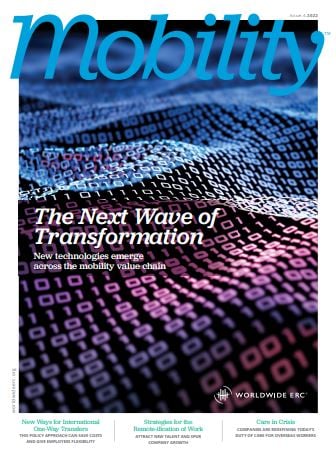One-Way Transfers: Creative Use Cases
One-way moves used to be just for permanent transfers, but global mobility is finding creative ways to apply this policy approach to save costs, support remote work, and give employees the flexibility they want. In this blog series, we’re taking a deeper dive into one-way transfers, focusing on creative use cases for one-way transfer policies. Please read on for the second installment of this series (and see here for the first post).
Before understanding how mobility is now using one-way transfers strategically, it’s important to understand what a one-way transfer is and how programs were using this policy historically.
For the employee, a one-way transfer involves being placed on local salary and paying local taxes. From the mobility perspective, relocation support is provided with limited or no ongoing allowances such as tax equalization, education, housing, or cost-of-living adjustments. In summary, the employee is expected to live like a local. For the business, one-way transfers are traditionally used for permanent relocations, in which the employee’s job is relocating to another country with no further mobility planned.
In recent years, mobility has found more applications for this policy beyond the traditional: leveraging of the approach for situations that once attracted a full expatriate package. For many companies looking to save on high-cost items such as tax equalization or cost-of-living support, a one-way relocation allows companies to move their talent compliantly without guaranteeing any conservation of the employee’s home standard of living. For financial and professional services companies that send talent between well-developed locations, a one-way transfer facilitates relocation between similar compensation schemes with comparable cost of living—no ongoing support needed. Finally, for early-career employees eager for international experience, a one-way transfer allows talent an international opportunity with minimal cost to the business.
In addition, other industry-specific factors have influenced the use of a one-way move: Certain company cultures and compensation schemes lend themselves well to this policy type. For example, at tech companies, international experience is coveted, and compensation reward often comes from long-term incentives. This means they don’t need to offer expensive home-based balance sheet packages. In fact, since employees are receiving equity, a full balance sheet package under a traditional expat package isn’t often perceived as valuable.
For the full article, originally published in the Issue 4 2022 copy of Mobility Magazine, please click here.





%20(24).png)
%20(23)%20(1).jpg)
%20(33).png)

